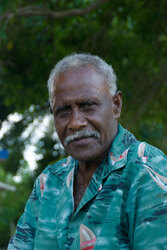[This week’s Communications column for the Vanuatu Independent.]
I got some really good feedback from last week’s proposal to create incentives for those kinds of computer equipment that are most suited to creating opportunity and improving access to information for ni-Vanuatu.
Not all of the news was necessarily good, but all of it was useful. Daryl Moon, who runs the local Datec store, responded that he’d done a little math on the issue, and he found that computer vendors would certainly be able to sell computers for less if they were constructed locally from tariff-exempt components.
But he went on to explain that in order to justify hiring extra staff for that purpose, he would have to sell 20 computers per week – a number which, he suspected, exceeds the weekly sales of all local computer retailers combined.
I also had discussion with a few local economists and trade experts. One of the issues raised was the difficulty of actually measuring the outcome of such tariff exemptions. Generally speaking, government is willing to accept a drop in revenues in one area provided that it sees an increase elsewhere (VAT income from increased sales, for example) or that the social benefit is sufficient to merit the cost.
As I reflect on these conversations, I’m beginning to realise that, ultimately, the most compelling argument for Appropriate Technology incentives is not economic in nature. The capstone on this discussion is a moral one.

 The problem with having 850 words a week is that I can only say one thing at a time.
The problem with having 850 words a week is that I can only say one thing at a time.